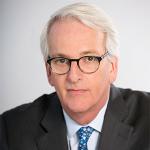This book chapter is published in Agenda for the Nation (Brookings 2003)
The age of geopolitics in American foreign policy is over; the age
of global politics has begun. Throughout the twentieth century, traditional
geopolitics drove U.S. thinking on foreign affairs: American security
depended on preventing any one country from achieving dominion
over the Eurasian landmass. That objective was achieved with the collapse
of the Soviet Union. Now the United States finds itself confronting a new
international environment, one without a peer competitor but that
nonetheless presents serious threats to American security. The terrorists
who struck the World Trade Center and the Pentagon neither represented
a traditional state-based threat nor were tied to a specific geographical location.
Nevertheless, nineteen people with just a few hundred thousand dollars
succeeded in harming the most powerful nation on earth.
For more than three centuries, the dynamic of world politics was determined
by the interplay among states, especially the great powers. Today,
world politics is shaped by two unprecedented phenomena that are in some
tension with each other. One is the sheer predominance of the United States. Today, as never before, what matters most in international politics
is how—and whether—Washington acts on any given issue. The other is
globalization, which has unleashed economic, political, and social forces
that are beyond the capacity of any one country, including the United
States, to control.
American primacy and globalization bring the United States great
rewards as well as great dangers. Primacy gives Washington an unsurpassed
ability to get its way in international affairs, while globalization enriches
the American economy and spreads American values. But America’s great
power and the penetration of its culture, products, and influence deep into
other societies breed intense resentment and grievances. Great power and
great wealth do not necessarily produce greater respect or greater security.
American leaders and the American people are now grappling with the
double-edged sword that is the age of global politics: how to maximize its
rewards while minimizing its dangers. In this debate, there is little disagreement
over whether the United States should be engaged in world
affairs. Both America’s extensive global ties and its vulnerability to outside
forces make disengagement and isolationism impossible. Nor is there much
disagreement on the purpose of American engagement. America’s interests
are best served by a continually expanding liberal international order, one
in which increasing numbers of people share the benefits of open markets
and democratic governments.


